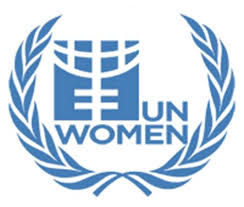$42m funding gaps impeding attainment of gender equality in ECOWAS – UN Women
- By Reporter
- May 14, 2023
- 3 min read
….Stakeholders recommend possible solutions

The United Nations (UN) Women have said that a forty-two million dollars funding gaps currently stands as an impediment to achieving gender equality in the ECOWAS sub-region, according to an African Development Bank’s (AFDB) report.
UN Women Country Representative to Nigeria, Ms Beatrice Eyong, disclosed this at the 2023 ECOFEPA Town hall meeting in Abuja with the theme, “Stimulating a Regional Dynamics for Mentoring the Next Generation of Decision Makers”.
Lamenting West-Africa’s position with the lowest inclusion of women in elective positions as against other regions of the continents, Eyong and other stakeholders said that deliberate and concerted efforts must be put in place to promote women participation.
Eyong said that the UN women harps on the need for mentoring of younger girls by older women in politics and leadership positions noting that “Success without Succession is a form of barrier.
According to her, “When women and young girls are in decision making positions, more inclusive decisions are made, different voices are heard and different solutions are created.
“With over 200 million people young people in our continent, half of them are girls, these numbers are expected to grow between now and 2030 by 42 per cent which would make women and youths the largest proportion of the population.
“Yet, in the West African region, we are still far short of the gender balance.
“As reported by AFDB, we have 42 million US dollars funding gaps. It means that if we have to meet gender equality, in our continents we need all these gaps to be closed.
“If we do not have this kind of funding, it is going to take us more than thirty years to see gender equality and women empowerment becoming a reality in Africa, and that will mean that none of us seated here will be alive to see that reality.
“That is why on behalf of the UN women, all women of the sub-region, we are calling on all of us to put our horns together and push gender equality and women empowerment.
“When women are empowered, it is not a threat to men, it is a complimentary support for men,” Eyong said.
Amb. Bola Preye Ayo, International Lobbyist and Chief Executive Officer, Trillion Global Presidential Consulting also with reference to a United Nations Economic Commission for Africa (UNECA) reports said that the gender gaps in leadership in the sun-region needs to be addressed urgently.
According to Ayo, the UNECA report revealed that women occupy only 16.5 percent parliamentary seat in West Africa and 9.8 percent of ministerial positions.
These limitations Ayo said could be addressed through policy reform, affirmative action policies, gender-sensitive policies, and laws that promote women's empowerment.
“Additionally, investing in skills development and capacity building programs for young women is crucial to closing the gender gap in leadership positions. These programs can provide young women with the knowledge, skills, and confidence they need to take on leadership roles.
“They can also help women overcome the barriers that prevent them from reaching their full potential,” Ayo said.
Ayo also reiterated the importance of establishing mentorship programs and networks to support the next generation of women leaders, to ensure that they have the support and guidance they need to succeed.
She explained that through mentoring, younger women can build their confidence, develop essential skills, and gain access to new opportunities.
According to the Goodluck Jonathan Foundation, to bridge gender gaps, and increase female representation, political parties should be encouraged to o adopt gender quotas to promote women participation.
Dr Ann Iyonu, Executive Director of the foundation said that “to achieve this, political parties should dedicate special seats to increase representation of women and youths in political positions, especially in parliament to encourage women and young people participate in politics.
“Adopt more technology to make politics and electioneering more attractive to women and youths.
“Develop educational programmes to boost the knowledge and skills of women and youths in civic engagement, politics leadership, and public speaking”.







Comments